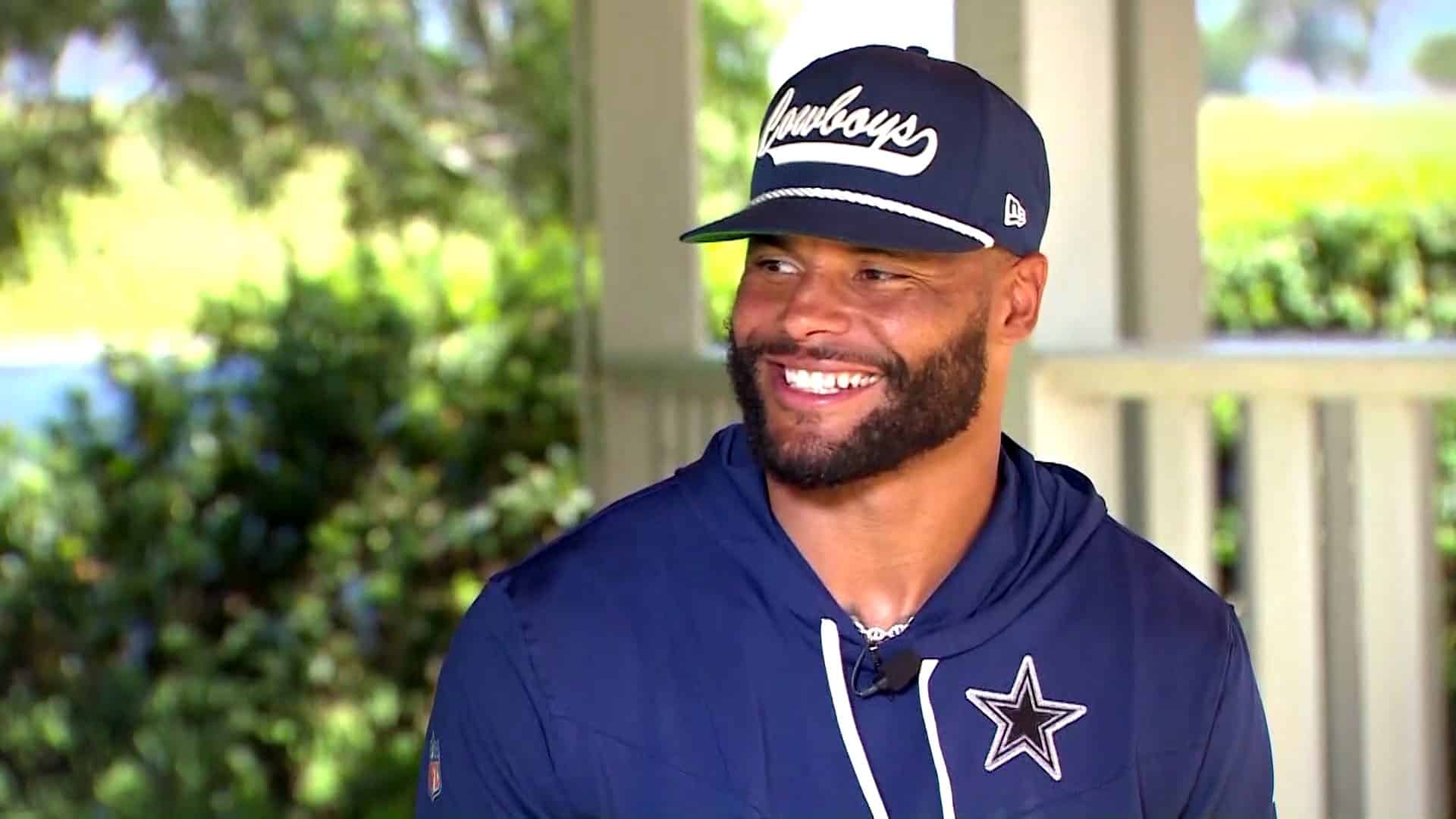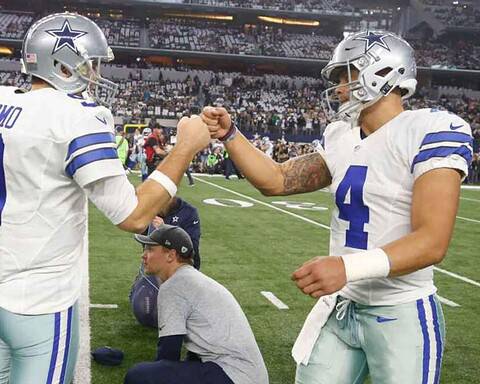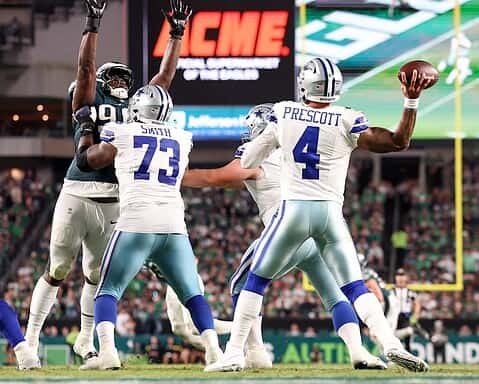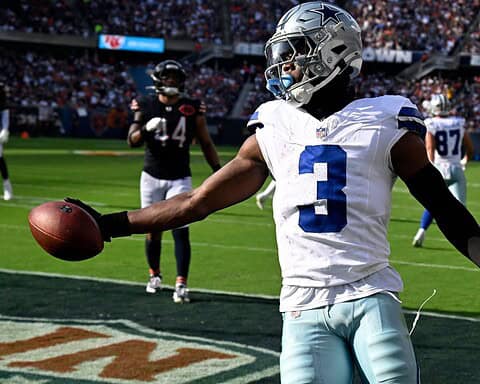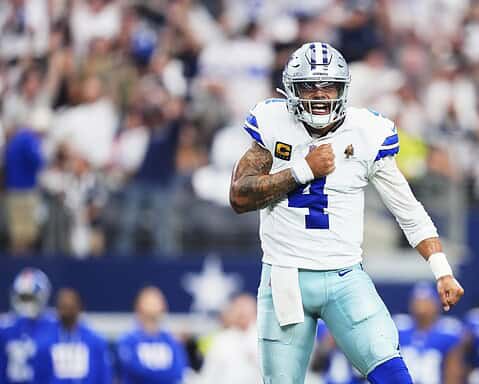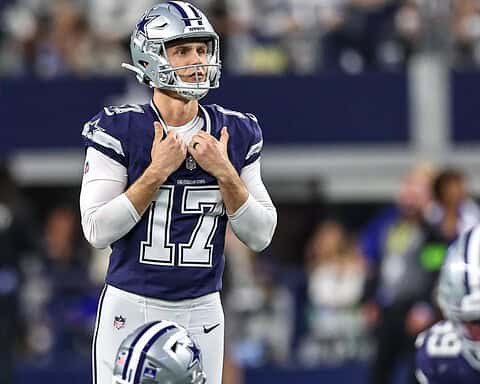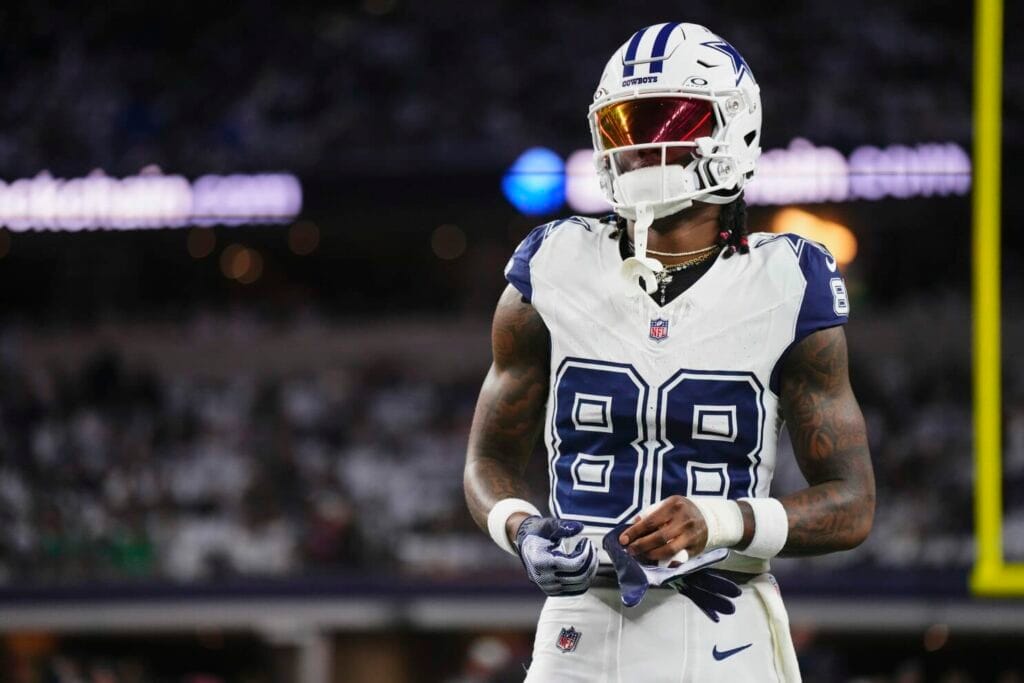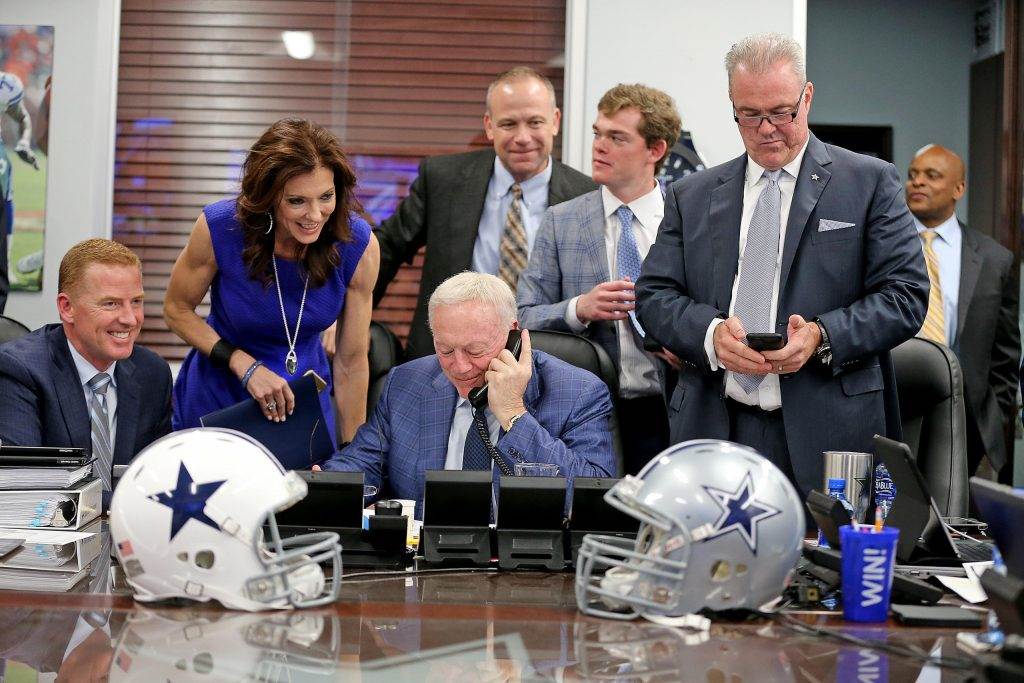Dak Prescott’s four-year, $240 million contract extension with the Dallas Cowboys is one of the biggest quarterback deals in NFL history—and it is about far more than money. It is a statement of intent, a declaration of belief, and a high-stakes gamble on performance, leadership, and legacy.
With roughly $231 million guaranteed and an average annual value of near $60 million, this deal represents a defining moment for both Prescott and the Cowboys organization.
Prescott’s New Deal
Prescott’s new four-year, $240 million deal includes approximately $231 million guaranteed and features an $80 million signing bonus.
This makes him one of the highest-paid players in league history and sets out a new benchmark for guaranteed money. The contract runs through the 2028 season, ensuring long-term stability for the Cowboys at the quarterback position.
For Dallas, this is not just a financial move—it is a commitment to build their identity around Prescott’s leadership and performance.
The high guarantees signal total faith in his ability to deliver, while the structure gives him the kind of financial security that only elite quarterbacks command.
Cowboys’ owner Jerry Jones made it clear that the deal was “the thing to do … and that is to win a championship.” Those words underscore the organization’s mindset: the team is not just extending a player; they are cementing the foundation of their championship ambitions.
Jones also called Prescott “our quarterback for the rest of my time,” a rare public affirmation of long-term belief.
This extension shows the Cowboys see Prescott not as a placeholder, but as their defining player for years to come. It provides the franchise with continuity, something it has lacked since the Tony Romo era, and it sends a message throughout the league that Dallas is fully committed to its quarterback.
Postseason Expectations
For all of Prescott’s regular-season success, the postseason narrative still lingers.
The Cowboys have consistently won 12 or more games with him under center, yet they have not advanced beyond the divisional round. That gap between regular-season dominance and playoff shortcomings is where this contract will ultimately be judged.
With an annual salary approaching $60 million, expectations are sky-high, and every playoff loss will carry even more weight.
With his name regularly appearing in NFL DFS discussions and media analysis, Prescott knows that the numbers must now translate to results when it matters most.
For Dallas, the investment must yield more than stability—it must produce postseason glory.
The Cowboys structured Prescott’s deal to provide immediate salary cap relief, freeing up tens of millions in space to strengthen the roster elsewhere. By adjusting bonuses and guarantees, Dallas managed to reduce his short-term cap hit while maintaining long-term flexibility.
This balancing act allows the team to pursue elite talent in free agency while keeping its core intact. However, the trade-off is clear: as Prescott’s cap hits escalate in later years, Dallas must maintain discipline to avoid cap strain.
Building a championship-caliber supporting cast around such a large contract becomes one of the front office’s most critical challenges.
Age, Durability, and Long-Term Risk
At 31 years old, Prescott remains in his prime, but age and durability still factor heavily into a long-term commitment of this size. Dallas must weigh his proven production against potential decline or injury risk as he approaches his mid-thirties.
While Prescott’s professionalism and work ethic have never been in question, the physical toll of the position adds uncertainty to any multi-year deal.
The Cowboys are betting that Prescott’s preparation, leadership, and pocket awareness will allow him to age gracefully, sustaining top-tier performance deep into his contract years.
Both the Cowboys front office and Prescott’s representation played crucial roles in shaping this landmark deal. Jones and the executive staff have publicly expressed unwavering belief in Prescott’s leadership, emphasizing stability and trust as organizational values.
On the player’s side, Prescott and his agents secured key protections, including no-tag and no-trade clauses, ensuring that his future remains firmly in his control.
Those terms reflect mutual respect and belief in the partnership—each side sees the other as essential to achieving the goal: a Super Bowl title in Dallas.
Media and Analyst Reactions
Media analysts have described this deal as a bold and calculated move—one that defines the Cowboys’ future. Some view it as a power statement, proof that Dallas is all-in on Prescott. Others question whether the team has invested enough in the pieces around him to maximize this contract.
The debate reflects the larger question looming over the Cowboys: can Dak Prescott turn regular-season excellence into postseason results?
Analysts point out that while Dallas has been among the NFL’s most consistent teams, the absence of deep playoff runs will define how this contract is remembered.
Among fans, the deal brought a mix of relief and anxiety.
Cowboys supporters welcomed the extension; grateful that the team avoided a prolonged quarterback search or a franchise-tag standoff. Locking in Prescott offers stability and a clear direction for the franchise.
Yet, along with that relief comes new expectations—fans now expect not just playoff appearances, but deep postseason runs.
Some remain skeptical, questioning whether the team can maintain roster depth under the weight of such a massive contract. Others view the move as a necessary step for a franchise that has long sought its next championship identity.
The Stakes of the Bet
This $240 million deal is not simply about financial commitment—it is a bet on Prescott’s ability to define an era.
The Cowboys are wagering that he can elevate the team beyond divisional-round ceilings and return them to the Super Bowl stage. The $231 million in guarantees symbolize complete organizational trust, while the cap management strategies show calculated optimism.
For Dallas, the next few seasons will determine whether this was a wise investment or an overreach of faith. Every win, every playoff game, and every setback will be measured against the magnitude of this commitment.
By committing to Dak Prescott through 2028, the Dallas Cowboys have entered an all-in phase unlike any other in the franchise’s modern history. The team’s leadership, roster planning, and public messaging all align behind one goal: turning this record-setting contract into a championship legacy.
Prescott’s production and leadership have justified the faith so far, but now the expectations are greater than ever. Dallas has made its wager clear—and the only acceptable payoff is a Lombardi Trophy.
